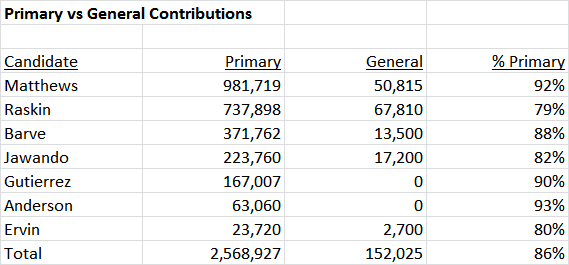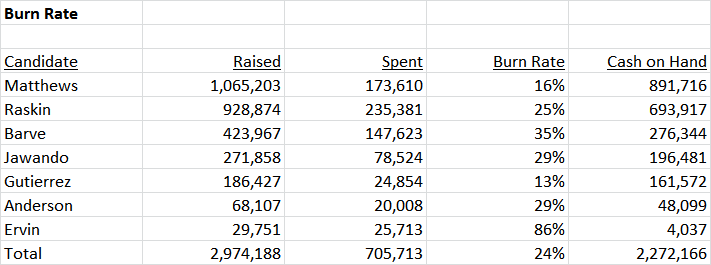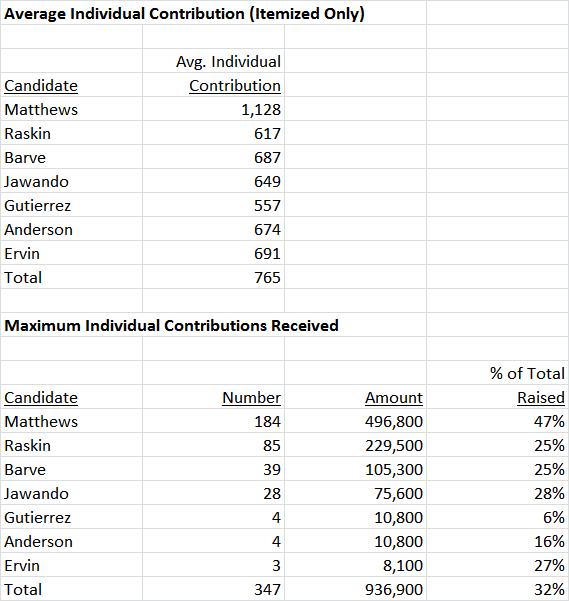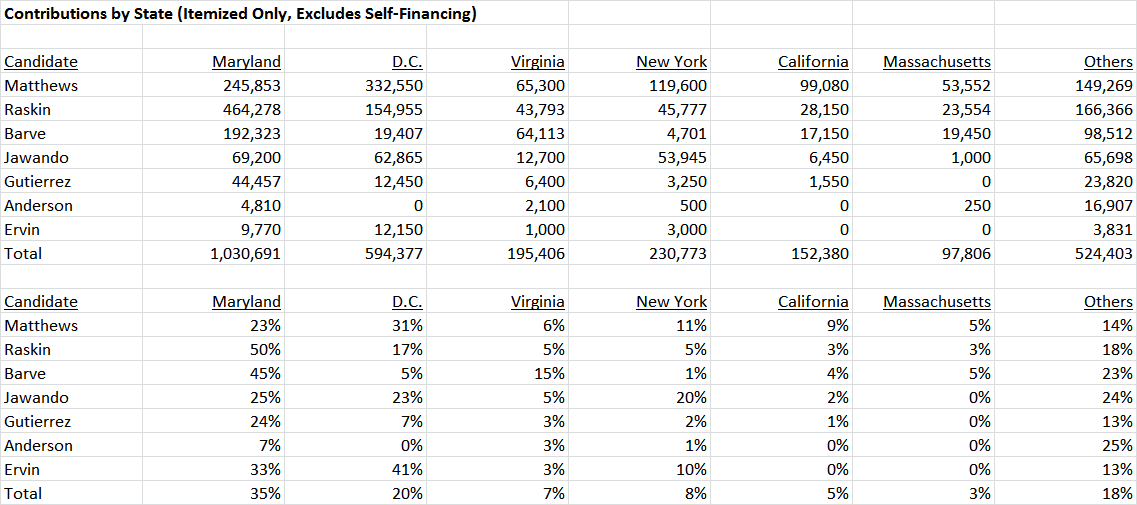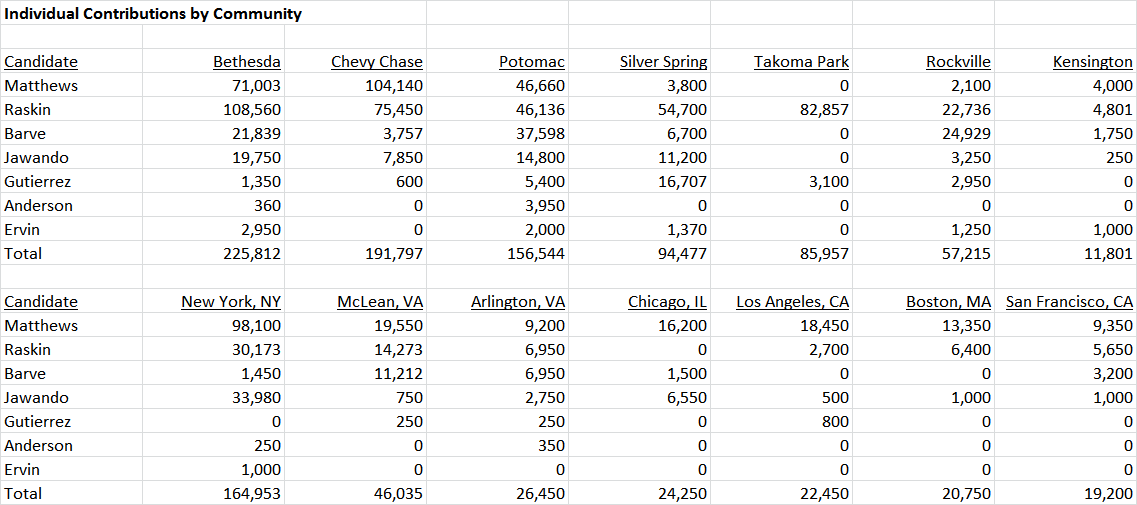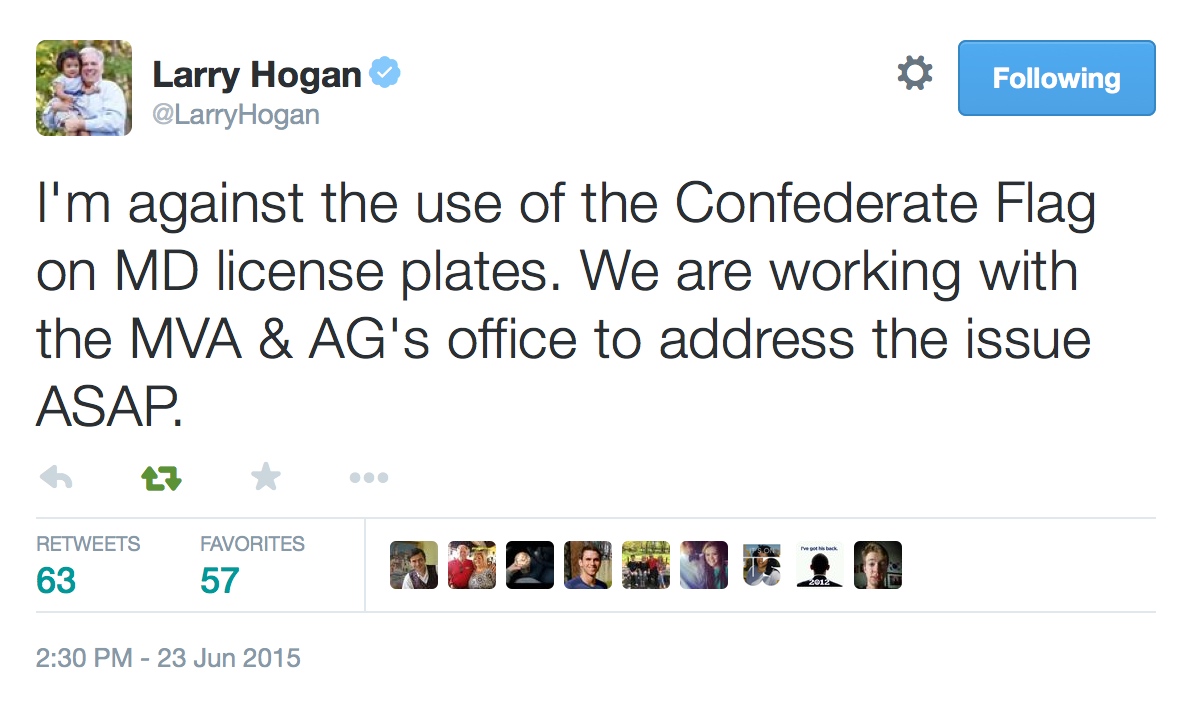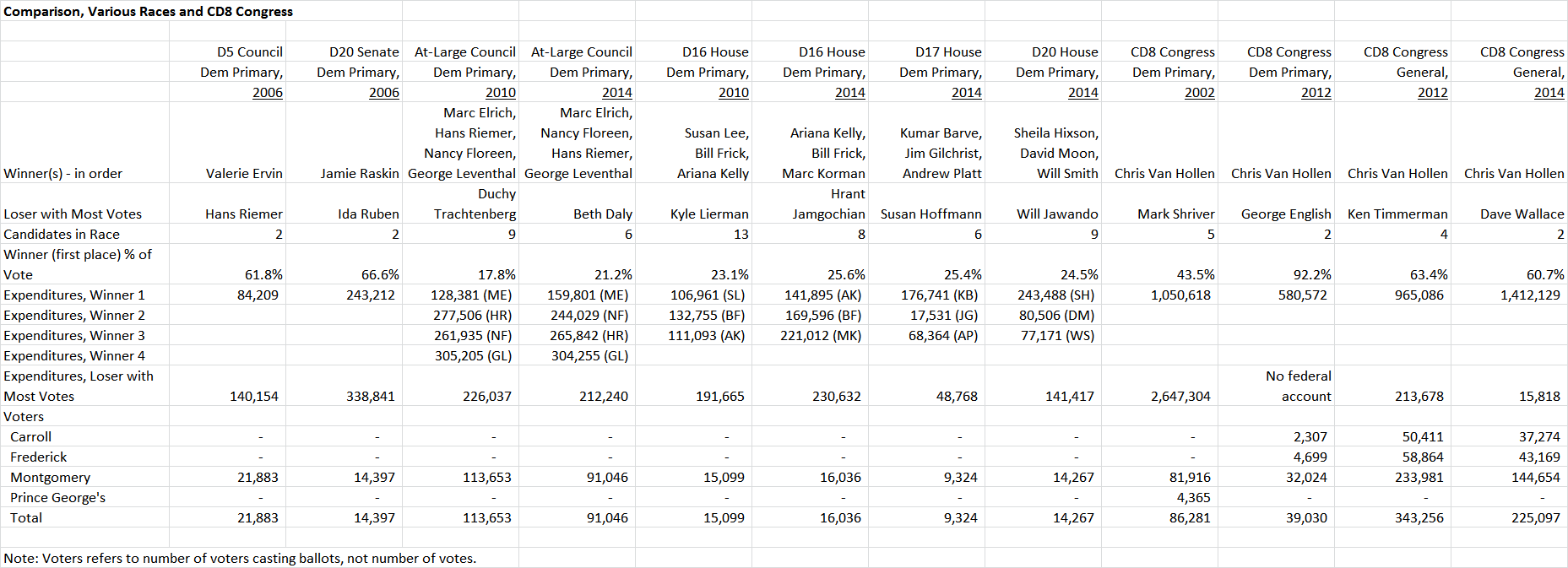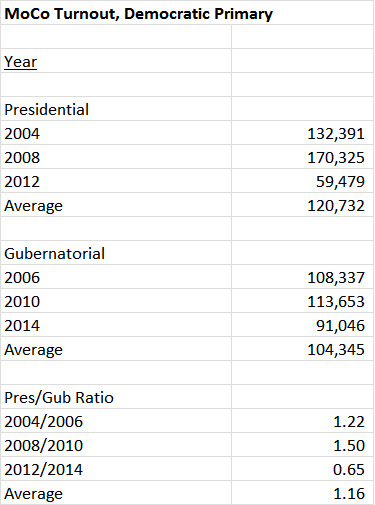Today, Senate President Mike Miller announced his new leadership team. Except for Sen. Ed DeGrange from Anne Arundel, all are from either Baltimore, Montgomery or Prince George’s–for the excellent reason that these jurisdictions provide the majority of the Democratic Caucus.
Committee Leadership
Much speculation surrounded who would take incoming AG Brian Frosh’s place as Chair of Judicial Proceedings, and the post has gone to Sen. Bobby Zirkin, who played leadership roles in efforts to decriminalize marijuana and tighten the responsibility of dog owners for attacks by unleashed dogs. Sen. Lisa Gladden will remain Vice Chair of this committee.
Sen. Jamie Raskin now heads the Executive Nominations Committee with Sen. Delores Kelley serving as Vice Chair. Less exciting during unified government, this committee will likely play a much stronger role–particularly in the next few months–with the Senate controlled by Democrats and the governorship by the Republicans.
Sen. Rich Madaleno also advances to Vice Chair of the Budget and Taxation Committee. Interestingly, he now holds the same posts as U.S. Rep. Chris Van Hollen did when he was in the MD Senate. Sen. Ed Kasemeyer, a comparatively moderate Democrat, will remain chair, which likely makes Madaleno a key progressive point person on budget issues.
Besides serving as Chair of the Montgomery County Senate delegation, Sen. Nancy King will now serve as Chair of the Education, Business and Administration Subcommittee of the Budget and Taxation Committee.
Another progressive, Sen. Paul Pinsky, advances to Vice Chair of Education, Health and Environmental Affairs. Sen. Joan Carter Conway remains the Chair of this Committee. This committee also remains a likely flashpoint between the Governor-Elect and the Democratic General Assembly.
Additional appointments, including a slew of new faces in the party leadership, including Sen. Catherine Pugh–a leader from Baltimore City–as Majority Leader are announced in the full press release:
SENATE PRESIDENT MILLER ANNOUNCES NEW LEADERSHIP APPOINTMENTS
ANNAPOLIS, MD – Today, Senate President Thomas V. Mike Miller, Jr. announced the first round of new leadership appointments effective for the new legislative session. “We are blessed in the Senate to have a wealth of talent and wisdom to help lead the state forward,” stated Senator Miller. “These members will provide the leadership to move our state and chamber forward.”
Senator Bobby Zirkin (Baltimore County, D-11) will become the Chair of the Judicial Proceedings Committee. Senator Zirkin has served on the Judicial Proceedings Committee during his time in the Senate, and served as a member of the House Judiciary Committee during his time in the House. “Senator Zirkin has been a key leader on judicial issues, and I know he is the right person to lead this committee,” stated Senator Miller. “His work in the legislature, and in his law practice provides him with the real-world experience that will allow him to lead the Judicial Proceedings Committee through the many difficult issues they will face.” Senator Lisa Gladden will remain Vice-Chair of the Judicial Proceedings Committee.
Senator Jamie Raskin (Montgomery County, D-20) will serve as Chair of the Executive Nominations Committee, and Senate Chair of the Joint Committee on Legislative Ethics. Senator Raskin has served in the Senate since 2007, and has served as a member of many important committees including Legislative Ethics, and Judicial Proceedings. Since 2012, Senator Raskin has also served as Majority Whip. “Senator Raskin’s ability to lead on key issues, and knowledge of this state will serve well as Chair of the Executive Nominations Committee,” stated Senator Miller. “Additionally, his legal knowledge and strong moral compass will make him a perfect fit for the Joint Committee on Legislative Ethics.” Senator Delores Kelley will serve as Vice-Chair of the Executive Nominations Committee
Senator Richard S. Madaleno (Montgomery County, D-18) will serve as Vice-Chair of the Budget & Taxation Committee. Senator Madaleno has served in the Senate since 2007, all on the Budget & Taxation Committee. He will also serve as Chair of the Health and Human Services Subcommittee. “Senator Madaleno is one of the brightest budget minds in the Senate, and his leadership on a wide variety of budget issues will be critically important as we face looming deficits and difficult times ahead.” stated Senator Miller. “I am confident that Senator Madaleno will continue to be an effective advocate for the best interest of the entire state.” Senator Edward Kasemeyer will continue to serve as Chair of the Budget & Taxation Committee
Senator Paul G. Pinsky (Prince George’s County, D-22) will serve as Vice-Chair of the Education, Health, and Environmental Affairs Committee. Senator Pinsky has served on the Education, Health, & Environmental Affairs Committee in the Senate since 1994, and as the Chair of the Education Subcommittee since 2003. “Senator Pinsky has the depth of knowledge of the issues needed to help guide this committee,” stated Senator Miller. “His keen understanding of educational and environmental issues will be an asset to our state moving forward.” Senator Joan Carter Conway will continue to serve as Chair of the Education, Health, and Environmental Affairs committee.
Senator James “Ed” DeGrange (Anne Arundel County, D-32) will serve as Vice-Chair of the Rules Committee. Senator DeGrange has served in the Senate since 1998, and has formerly served as Vice-Chair of the Executive Nominations Committee, and currently serves as Chair of the Public Safety, Transportation, and Environment Subcommittee of the Budget and Taxation Committee, as well as Chair of the Capital Budget Subcommittee of the Budget and Taxation Committee. Senator DeGrange will continue in both these roles. Said Senator Miller: “Senator DeGrange is a true leader in the Senate and his longevity and leadership will ensure that the Rules Committee will have a strong voice as Vice-Chair.” Senator Katherine Klausmeier will continue to serve as Chair of the Committee on Rules.
Senator Nancy J. King (Montgomery County, D-39) will serve as Chair of the Education, Business and Administration Subcommittee, and will continue to serve as Assistant Deputy Majority Leader. “Senator King is a leader on budgetary issues in the Senate, and a key member of the Budget & Taxation committee,” stated Senator Miller. “As Education, Business and Administration Subcommittee Chair, Senator King will make certain we look out for the needs of all Marylanders.”
In addition to committee leadership, Senator Miller today announced Caucus leadership for the Senate Democratic Caucus. “We thank Senator Jim Robey for his service to our Caucus and our state. I am proud to announce the new Caucus leadership who will continue to make sure that as Democrats we continue to have a large tent that hears the views of all Democrats and all Marylanders.”
Senator Catherine Pugh (Baltimore City, D-40) will serve as Majority Leader. Senator Pugh has served in the Senate since 2007, has served as Deputy Majority Leader since 2011, and is the former Chair of the Women’s Caucus. “Senator Pugh has the respect and admiration of her colleagues throughout the Caucus and the Senate,” stated Senator Miller. “She has a strong grasp on the issues and will be a strong voice for the needs of all Marylanders.”
Senator Douglas J. J. Peters (Prince George’s County, D-23) will serve as Caucus Chair. Additionally, Senator Peters will serve as the Chair of the Pensions Subcommittee of the Budget & Taxation Committee. Senator Peters has served in the Senate since 2007, and has served as Chair of the Prince George’s County Delegation and Chair of the Veteran’s Caucus. “Senator Peters has been a strong leader in the Senate and will serve the Caucus well as its Chair,” stated Senator Miller. “His commitment and devotion to the State of Maryland and knowledge of budgetary issues will help to lead this state through the upcoming session.”
Senator Katherine Klausmeier (Baltimore County, D-8) will serve as the Deputy Majority Leader. Senator Klausmeier has served in the Senate since 2003, and the General Assembly since 1995. “Senator Klausmeier brings a unique perspective to our Caucus, and one that helps bind together and ensure that all areas and perspectives of our state continue to be heard,” stated Senate Miller. “I am excited to have her serve our Caucus in this key leadership role.” Senator Klausmeier will also continue to serve as Chair of the Senate Rules Committee.



